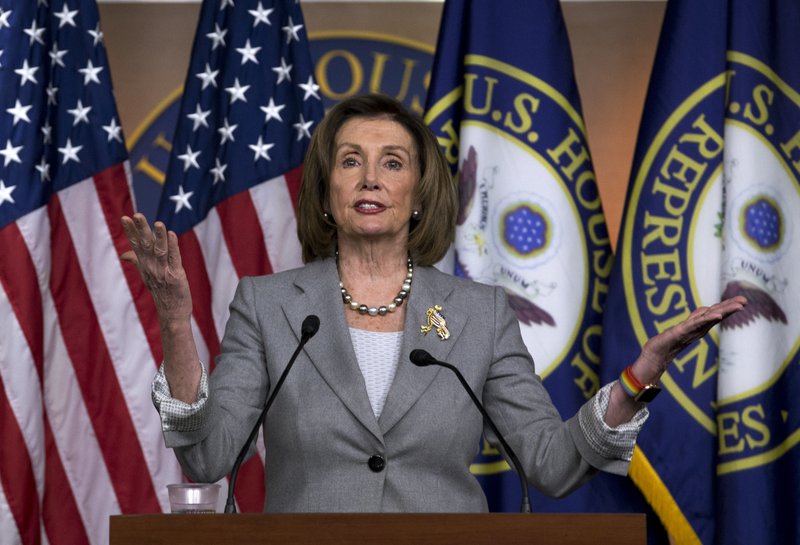Senior lawmakers announced a tentative agreement Thursday on an almost $1.4 trillion government-wide spending bill that would stave off a federal shutdown next weekend and split the differences on a number of contentious issues.
The handshake agreement was announced by the chairwoman of the House Appropriations Committee, Rep. Nita Lowey, D-N.Y., and other top members of Congress.
“There’s a meeting of the minds,” Lowey said.
Details of the agreement were not announced and processing the sweeping measure is sure to take a few days. But it would award President Donald Trump with $1.4 billion in additional money for the U.S.-Mexico border wall while giving the Democrats who control the House a number of their priorities such as expanded Head Start and early childhood education.
The measure is likely to pass the House next week just before the House votes on impeaching Trump. A Senate vote is expected before a temporary spending bill expires next Friday at midnight.
A White House official said Trump is likely to sign the bill because it maintains his ability to pay for the wall. The official spoke on condition of anonymity because the deal is not official.
A year ago, a deadlock oover the wall led Trump to spark a 35-day partial government shutdown. The eventual agreement that emerged produced a template for the current pact: no “poison pill” policy provisions on topics such as abortion and the environment that could not pass muster with both Democrats and Republicans.
“We decided that the decisions would be made today,” said Rep. Kay Granger, R-Texas. “We said, ‘It’s time to get this thing done.’”
At issue are 12 annual spending bill that fund the day-to-day operations of federal agencies. The appropriations package fills in the long-overdue details of this summer’s budget and debt pact, which offered boosts to both the Pentagon and domestic agencies instead of the sharp across-the-board spending cuts required under a now-defunct 2011 budget agreement.
Trump’s top priority is to guarantee additional dollars for border fencing and other barriers. The deal bowed to a White House demand that Trump retain authority so he can transfer money from Department of Homeland Security and Pentagon accounts to border barrier construction. That promises to ease the sting of seeing his $8.6 billion border request cut way back.
The emerging measure is also likely to serve as the vehicle to carry into law several provisions unrelated to agency money; the spending bill is the last, best option to accomplish that.
They probably will include: a renewal of the Export-Import Bank’s charter; a reauthorization of government-backed terrorism risk insurance; a short-term extension of the federal flood insurance program; and further delays of Obama-era health law taxes such as those on medical devices and high-cost health plans.
A broader set of tax “extenders” popular with Washington’s business lobbying community appears stuck.
Liberal Democrats and members of the Congressional Hispanic Caucus probably will be disappointed in the split-the-differences outcome. House Speaker Nancy Pelosi, D-Calif., met with the Hispanic lawmakers on Wednesday.
“Our top concern is that the president doesn’t misappropriate funds to fund a wall and continue to fund ICE and CBP,” said Rep. Debbie Mucarsel-Powell, D-Fla., referring to U.S. Immigration and Customs Enforcement and U.S. Customs and Border Protection.
It was obvious to negotiators, however, that essentially maintaining the status quo on border issues was the common denominator option, given the current balance of power in Washington. The same held for several Democratic-drafted provisions related to abortion that were also dropped.
(AP)











